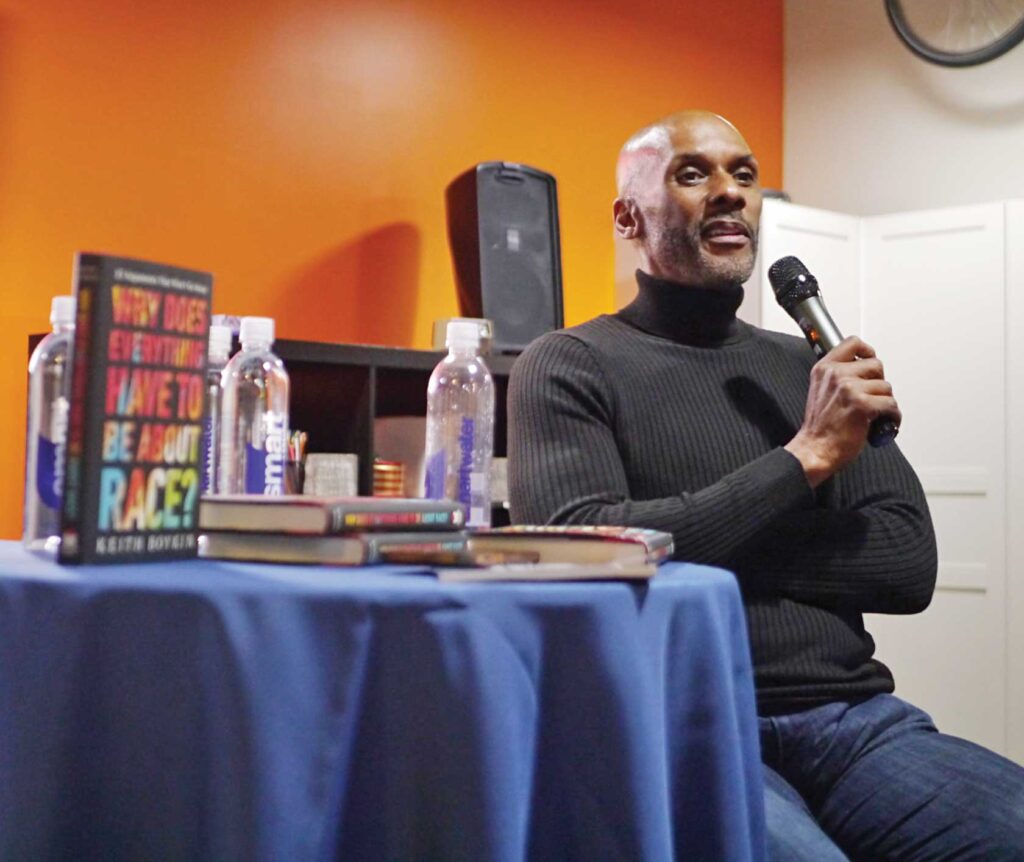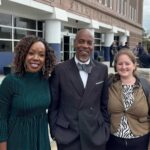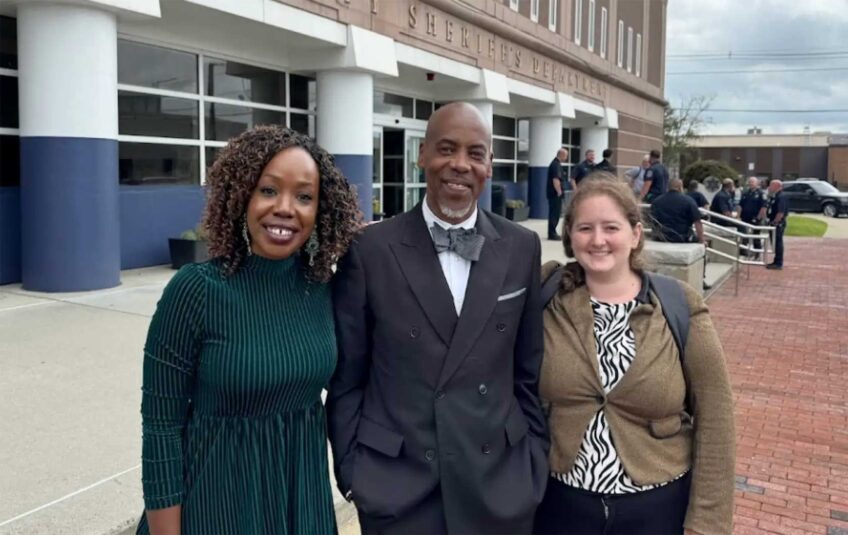
Keith Boykin wasn’t planning on writing a book in 2022 when the idea for “Why Does Everything Have to Be about Race?” took hold.
“The book chose me,” he told an audience that packed into 826 Boston’s Egleston Square location on Feb. 6 .
Boykin, a CNN commentator and New York Times best-selling author, said he wanted to move past writing about racism, but with racial politics still very much in the forefront of the national discourse, the issue is unavoidable.
“It seems like we’re still out of control,” he said. “We’re still dealing with race in ways that make it feel like we’re moving backwards.”

Boykin’s book, “Why Does Everything Have to Be about Race?” takes on 25 misconceptions whites use to push back against evidence of America’s racial injustice, past and present. COURTESY PHOTO
Boykin’s book, released this month by Hachette Book Group, takes on 25 misconceptions whites use to push back against evidence of America’s racial injustice, past and present. The book’s five sections deal with the erasure of Black history, the centering of white victimhood, the denial of Black oppression, myths of Black inferiority and the rebranding of racism. Each chapter is broken down further into common arguments whites deploy in discussing race and Boykin’s fact-based, well-researched counterarguments.
“I thought it would be useful if we had a handy reference guide,” Boykin said.
In some ways, his book was prescient. In the first chapter, he queues up the familiar argument that the Civil War was not fought over slavery, citing among other things the pro-slavery arguments for the war made by secessionist political leaders in the months leading up to the war.
As the book was being printed, Donald Trump’s former ambassador to the United Nations and current presidential candidate Nikki Haley told a New Hampshire audience the war that ended slavery in the United States was fought over “basically how the government was going to run.”
Boykin said, “It’s just so baffling to me that this question is still coming back to us 160 years after the Civil War.”
Boykin’s appearance last week is part of a multi-city tour to promote the book. Boykin responded to questions from three students who work at 826 Boston, a nonprofit that helps train K-12 students to write, periodically publishes their fiction and poetry, and provides help with homework and tutoring.
In his book, Boykin invokes arguments that have circulated in the public discourse in recent years. Asked about his response to whites who insist that Blacks who object to America’s policies should “go back to Africa,” Boykin first cited Minnesota Rep. Ilhan Omar’s response to a similar argument from Donald Trump: “This is my country and I am a member of the House that impeached you.”
Speaking to the Egleston Square crowd, Boykin went further in deconstructing racist arguments.
“The truth is, race is a social construct,” he said. “It does not really exist except for in our minds, because we create it — but we can’t just deny that it has an impact on us, because it does.”
Many of the students’ questions veered away from topics covered in the book. Boykin, who studied critical race theory under the late Derrick Bell while at Harvard Law School, gave insightful answers.
Asked whether there were topics he wanted to include in the book but couldn’t, Boykin noted that in the time since he finished working on the book in June 2023 up to its publication this month, Blacks seem to have lost much of the ground they gained over the last 70 years.
He cited a lawsuit brought by the conservative American Alliance for Equal Rights — overseen by Edward Blum, who successfully challenged affirmative action in college admissions — against a group of Black women in Atlanta who founded a venture capital fund to support other Black women.
“That’s how far backwards we’re moving,” he said. “White men are 30% of the population but control 90% of venture capital funds and invest less than 1% with Black people — and that’s legal.”
Ultimately, Boykin said, most arguments about race serve to distract Blacks from doing the work they need to advance. He cited a quote from novelist Toni Morrison in a speech she gave at Portland State University in 1975.
“It keeps you explaining, over and over again, your reason for being,” Morrison said.
So why argue at all about race? It doesn’t always make sense to do so, Boykin said.
“You have to make your own judgment,” he said. “Some people, I think, are worth investing time in educating because they are open to learning. But there are some people who just don’t want to learn or invest in that learning and are remaining ignorant, and I’m not spending another moment of my time trying to educate those people.”
But for those occasions that call for a robust argument, Boykin gave the following advice: “Don’t waste your time being distracted. Spend your time taking care of the things you need, and if you have to answer any of these arguments, just buy my book.”
Greater Boston News Bureau







